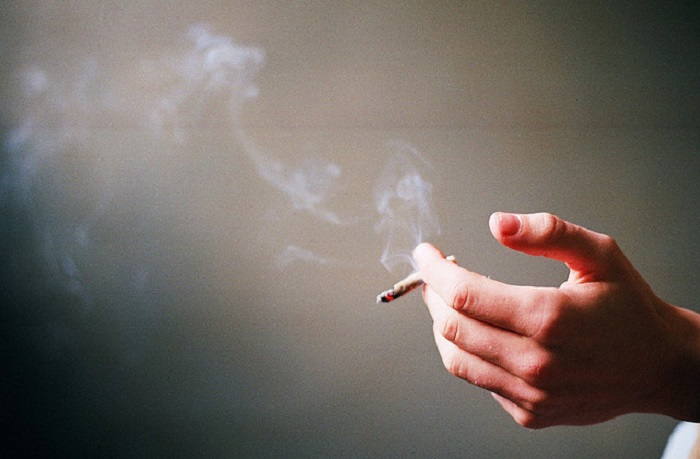Secondhand smoke you don`t even know you`re exposed to is killing you

“Of over 20,000 non-smokers, we found that in those who had high levels of cotinine, somehow they’re getting exposed to smoke without realizing it— many of these [individuals] are going to be in public housing, low-income communities and minority communities,” study author Dr. Raja M. Flores, chairman of the department of thoracic surgery and professor at The Mount Sinai Medical Center, told FoxNews.com.
Cotinine only remains in the blood for a few days, indicating that these findings suggest subjects were exposed very recently.
According to their study, which was published online on Sept.7 in Carcinogenesis, non-smoking individuals with the highest levels of cotinine lost 13.8 years of life.
What’s most alarming, Flores said, is that non-smoking individuals are unaware of their risk, answering “no” when asked if they are exposed to secondhand smoke.
“Little do they know that underneath the door, through the cracks, crevices, there’s stuff seeping in living quarters, work areas or spaces in some other way,” Flores said.
Doctors need to work on better identifying these unknown at-risk patients, Flores said, including finding out if they live in high-risk areas and potentially screening for diseases like lung cancer.
“I think from a public health issue, this is something that needs to be addressed— the fact that they’re mainly lower income people who are subject to this,” he said.
For individuals who think they may be at risk, Flores suggested asking the doctor for a cotinine blood test and, if they have notable levels, to get a low-dose CAT scan to screen for disease. At-risk individuals should change their surroundings and investigate the source of their exposure.
In his practice, Flores has observed that patients with high cotinine have a tendency to be diagnosed with late-stage cancer and die from the disease.
“Now I’ve changed the way I practice,” he said. “You want to make sure you can identify these patients who are at risk, even before getting any cotinine levels and just avoid getting cancer to begin with, but it’s hard. That’s why at least the cotinine levels give you something concrete. If the level is up, this person has got to do something.”















































